Items
Tag is exactly
Middle East
-
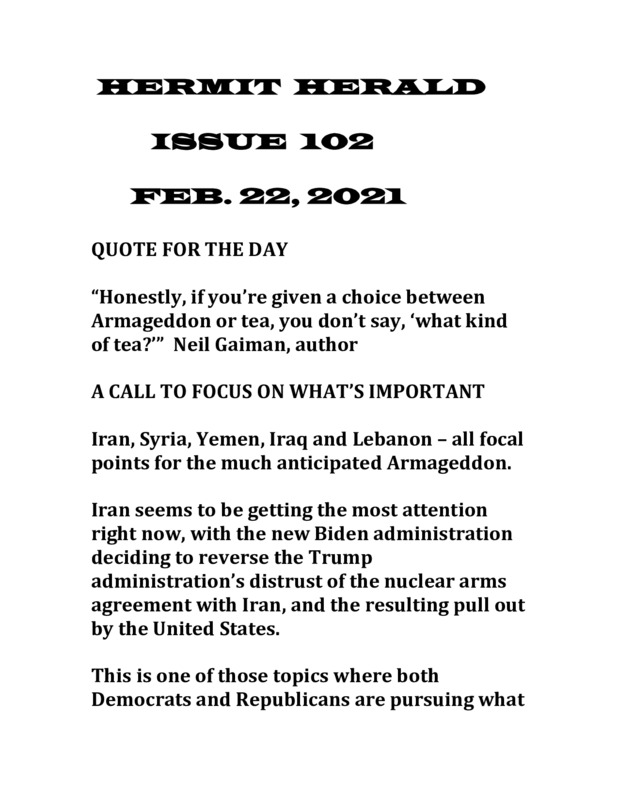 2021-02-28
2021-02-28hermit HERALD, ISSUE 103
Senator Murphy urges U.S. stop supporting allies in Mideast proxy wars -
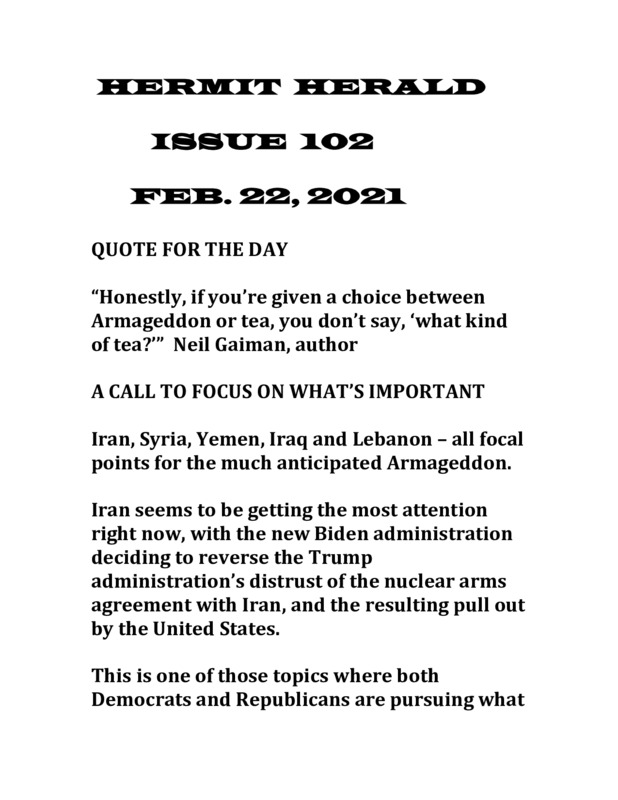 2021-02-22
2021-02-22HERMIT HERALD, ISSUE 102
Armageddon in the Mideast -
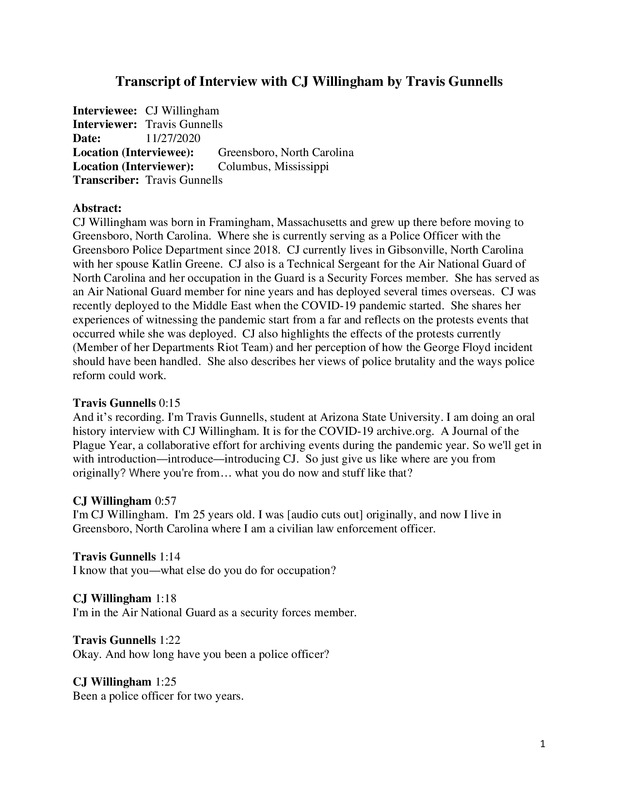 11/27/2020
11/27/2020CJ Willingham Oral History, 2020/11/27.
The Oral History interview is with CJ Willingham and she describes her experiences and views during the pandemic year. CJ gives her encounters during the initial pandemic and how the pandemic is affecting her now. She explains her perspective on more than the pandemic. CJ shares her knowledge on protests, police brutality and police reform. -
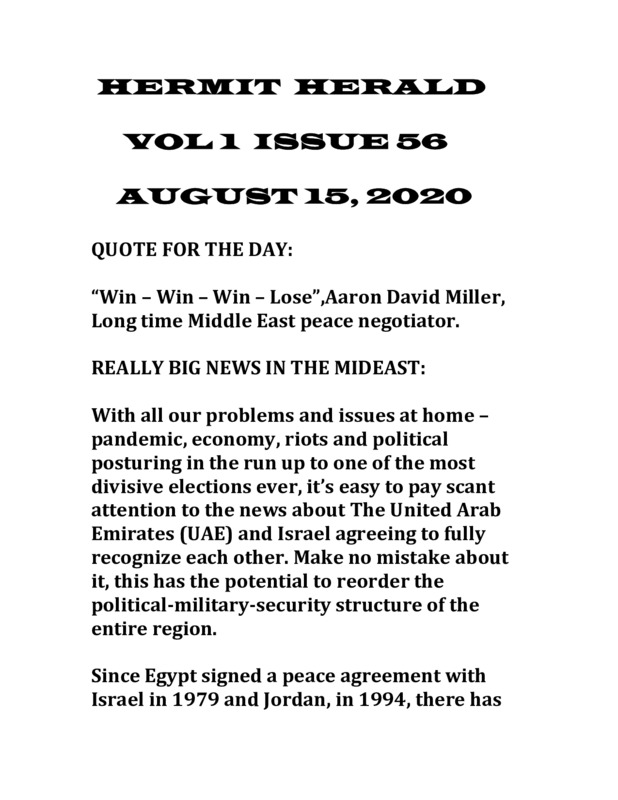 2020-08-15
2020-08-15hermit HERALD VOL 1 ISSUE 56
ISRAEL-UAE PEACE -
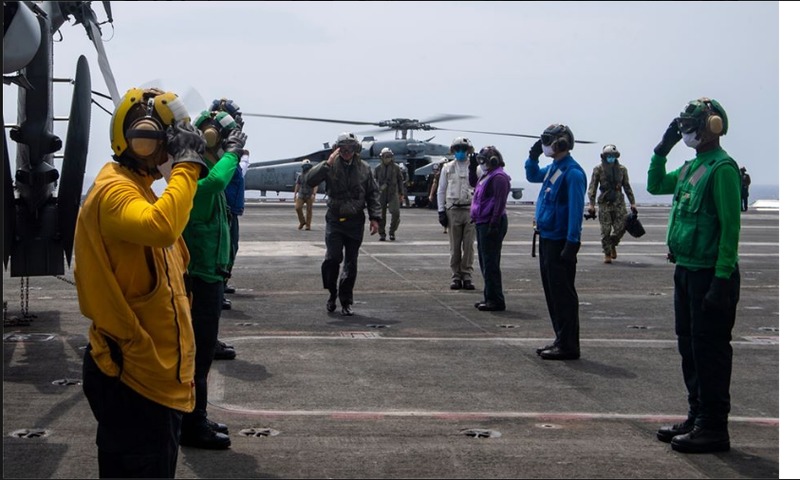 2020-06-05
2020-06-05Welcoming Aboard the SECNAV
Masked up and spaced apart, the crew of the aircraft carrier USS Harry S. Truman (CVN-75) welcomes Secretary of the Navy Kenneth Braithwaite aboard after they dropped anchor at the Norfolk Navy Yard following a 5-month tour of duty to the Middle East theater of operations and a 2-month "sustainment cruise) off the Virginia coast. The Truman remained at sea after the conclusion of their Middle Eastern cruise due to COVID-19 concerns and the need for deploying carrier groups to quarantine before getting underway and replacing the Truman in the Navy's operational rotation. -
 2020-05-12
2020-05-12Travel and Self Isolation for a boarding school student
Travel and Self Isolation for a boarding school student -
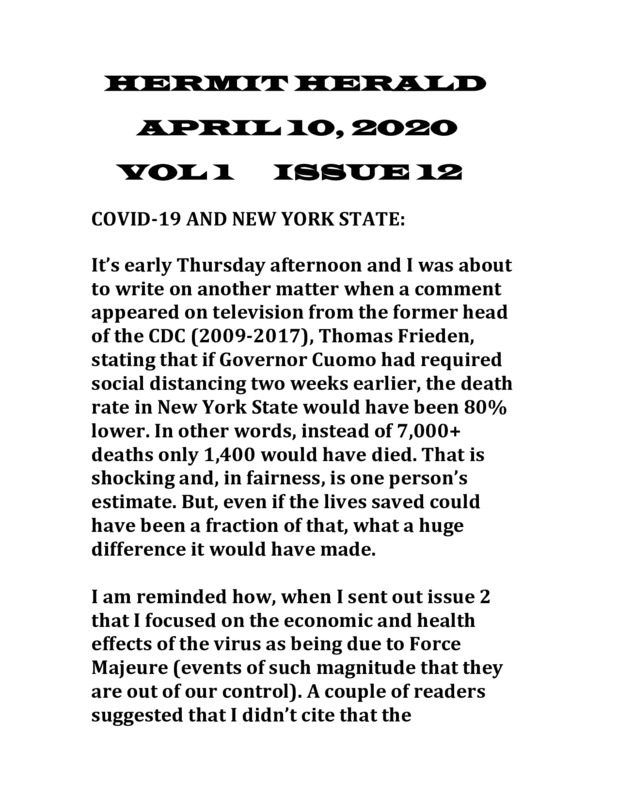 2020-04-10
2020-04-10"The Hermit Herald" vol. 1 Issue 12
Cuomo, terrible CV stats NY State; Saudi Royals sickened; mid-East; cruise ship industry & CV. -
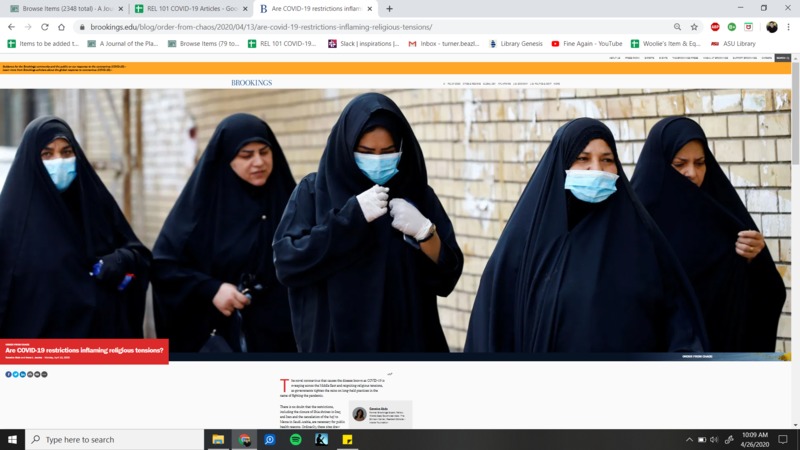 2020-04-13
2020-04-13Are COVID-19 Restrictions Inflaming Religious Tensions?
This article discusses how some countries in the Middle East view the religious restrictions such as the closure of Shia shrines in Iraq and Iran and the cancelation of the hajj to Mecca in Saudi Arabia as a form of violation of religious practices and repression of religious minorities. It is said that these restrictions will negatively impact how people view their government leaders. -
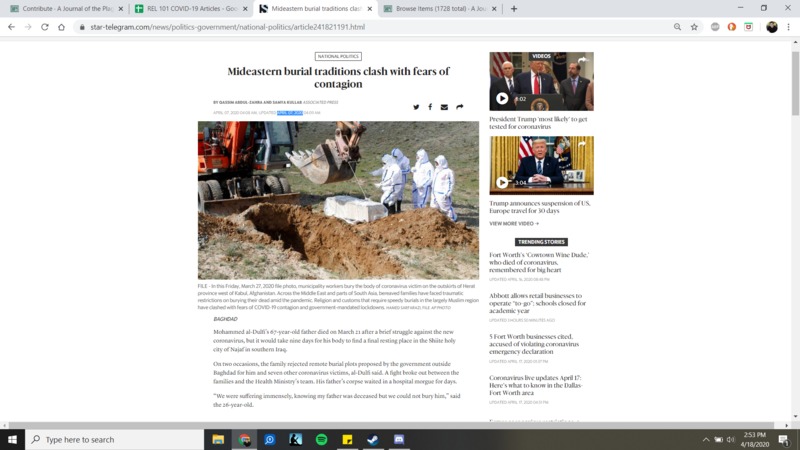 2020-04-07
2020-04-07Mideastern burial traditions clash with fears of contagion
The article is about how Covid-19 has affected the religious burial practices of those who died from infection in the Middle East. Attention focuses on the contrasting differences between how the infected bodies were handled, where they were layed to rest, and traditional preparational practices that were foregone during the early stages of the Pandemic due to the lack of knowledge and fear about the virus itself, resulting in discord between deeply religious family members of the deceased and government/health officials. -
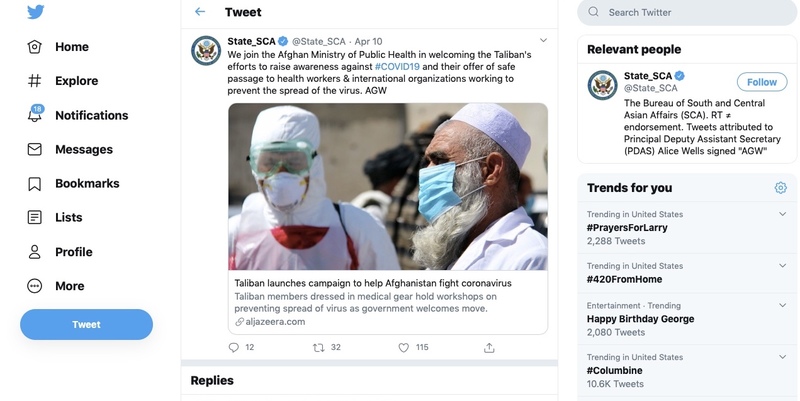 2020-04-10
2020-04-10Digital Diplomacy: State Department Praises Taliban
This is a tweet by the United States State Department Bureau of South and Central Asian Affairs, attributed to its Principal Deputy Assistant Secretary, Alice Wells. This tweet is an example of digital diplomacy and practical geopolitics. According to Jason Dittmer and Daniel Bos digital diplomacy refers to diplomatic outreach through social media by policy makers and government officials; practical geopolitics is the discourse associated with politicians and policy makers. The tweet also touches on how the international system is divided into nation-states, yet many fail to govern effectively and there are bad actors that take on responsibilities of the state. Furthermore, in a world of social distancing and limited human interaction digital diplomacy is sure to gain more prominence. During this pandemic, we should all be more acutely aware of how geopolitics is playing out through virtual mediums. There are few interesting elements to this tweet. First of all, the state department rarely ever praises the Taliban for anything. Important context for this praise is the recent peace initiative of the United States for the Taliban and the Afghan government. The recent peace deal brokered by the United States between the Taliban and Afghan Government is incredibly fragile. This context likely informed the State Department’s decision to praise the Taliban. However, the State Department should be prioritizing working with the Afghan government, not the Taliban. Second, this statement of praise for the Taliban acknowledges a great extent of agency and power by the Taliban and the limitations of the Afghan government. The Taliban is a bad non-state actor, but this tweet acknowledges their capacity to provide leadership and services of a state. COVID-19 has created another stage where the Taliban can compete against the Afghan government, and so far the Taliban has responded to this crisis more effectively. Finally, this tweet undermines the popular discourse of COVID-19 versus nation-states. For the most part, responses to COVID-19 are examined on a national level. The prevailing discourse on COVID-19 responses is about the effectiveness of a certain nation-state’s response to the virus. However, this tweet brings up the fact that many governments and nation-states around the world fail in effective governance and that this leaves openings for non-state actors to take on responsibilities of a state. COVID-19 is testing the limits of nation-states’ power and effectiveness and in many places any shortcomings may be corrected by non-state actors (even if they are bad actors). What remains to be seen is if increased constructive interaction between bad non-state actors and the citizens of nation-states leads to an increase in future positive interactions, or if this phenomenon is exclusive to the COVID-19 crisis.
